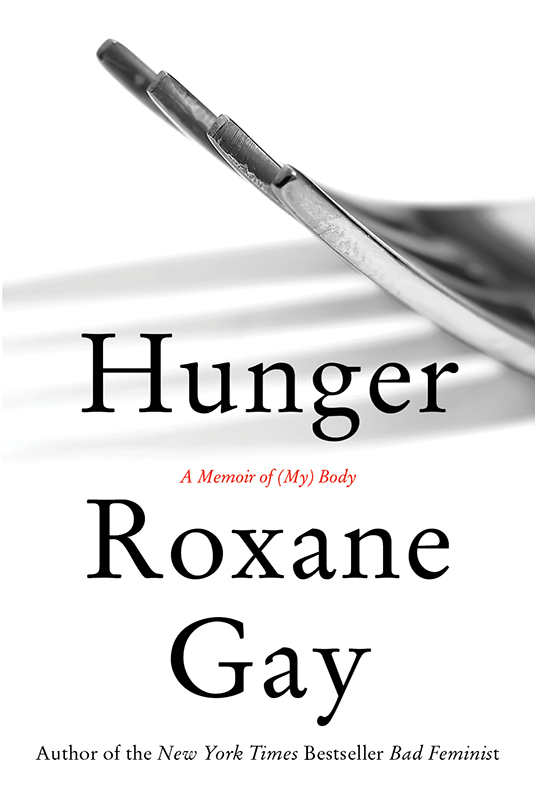
Hunger: A Memoir of (My) Body
by Roxane Gay
published by Harper Collins, New York
2017
Hunger is a remarkable memoir by Dr. Gay, whose essays I’ve always enjoyed. She is a child of Haitian immigrants; a sexual assault survivor; a university professor; a writer; and a six foot three inch woman who has to cope daily with the overt hostility of the designed physical environment toward larger people.
This memoir is as charming, thoughtful, and well-written as her other essays, but also deeply personal. She shares many private experiences, not only relating to the sexual assault that traumatized her and changed her relationship to her body, but also her struggles in managing the pressures of her parents, the decisions that were made for her by others about her future, her loneliness in school, difficult interpersonal relationships, the appeal of the Internet to communicate, and her path to teaching and writing.
Dr. Gay writes that her memoir was very difficult to create. It does contain many painful moments, told with her clear, direct, and elegant prose. I enjoyed the audio version of this book read by the author, and her voice is pleasing; the intimacy of the work in her voice is especially touching; while she won’t admit to bravery, the way she shares her life with honesty and vulnerability is moving and admirable. Her wry humor shines through in unexpected moments.
Portions of the book relate very much to the body she has created as armor against the traumas she has survived, and much of the press for the book when it came out focuses on this. I’ll include an excerpt printed by the UK Guardian on this topic, but know that this is just one of her themes.
Roxane Gay: ‘My body is a cage of my own making’
o tell you the story of my body, do I tell you how much I weighed at my heaviest? Do I tell you that number, the shameful truth of it always strangling me? At my heaviest, I weighed 577lb, or over 41st, at 6ft 3in.
I felt a bit defensive about the decision to publish excerpts on this topic by the press and/or the publisher, but I think it supports a point Dr. Gay makes about large bodies being treated like public property by our society.
This is an excellent memoir, and I hope it was satisfying and cathartic to write it. I think it will be enjoyed by: anyone who already appreciates her essays; sexual assault survivors (and their loved ones); writers (and anyone else with a passion) who need reassurance that the path to a writing life (or a professorship) can be indirect and filled with detours; people who are trying to understand trauma; and anyone who enjoys a well-written, contemporary memoir.
